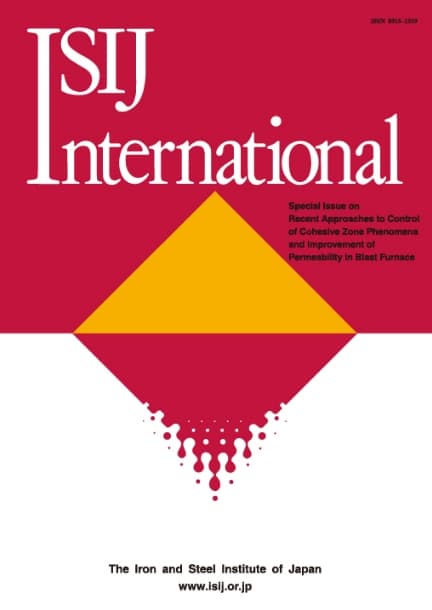Separation of Metal Droplets from Slag
Penny K. Iwamasa, Richard J. Fruehan
pp. 1319-1327
Abstract
The motion of liquid metal droplets in molten slags was studied using low temperature physical modeling and X-ray observations at high temperatures. Experiments were done to assess settling times of metal droplets in slags. Experimental work included oil and water modeling and high temperature experiments utilizing a furnace equipped with an X-ray fluoroscopy apparatus. Results show that settling times of metal droplets in stagnant slags and water droplets in a variety of oils can be accurately predicted utilizing Stokes' equation modified for the appropriate experimental conditions. It was also found that gas stirring in slags, whether by chemical reaction or gas injection, and slag foaming increases droplet settling times. Stable foams resulting from the reaction of FeO in the slag and carbon in the metal as well as gas injection in the metal phase caused rafts to form which could permanently hold droplets up to about 5 mm in diameter at the top of the slas. For better separation, slags with low viscosities are recommended and foaming should be avoided.
Readers Who Read This Article Also Read
ISIJ International Vol.57(2017), No.6
ISIJ International Vol.53(2013), No.7
Tetsu-to-Hagané Vol.69(1983), No.15










